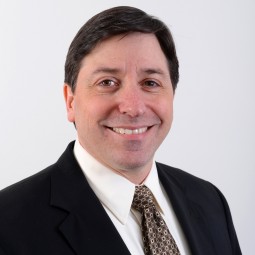Faces of Hope: Jason Peck, Psychiatrist and Sleep Medicine Consultant
March 04, 2019
In addition to conducting psychiatric consultations as one of HopeWay's psychiatrists, Dr. Peck's unique training in sleep medicine also allows him to help clients who are actively being treated for problems related to hypersomnia, insomnia, sleep apnea, sleep-wake problems, and more.
Among his many noteworthy accomplishments, Dr. Peck is the founder, CEO and Medical Director of the Center for Integrative Sleep Medicine in Charlotte. He earned his Bachelor of Science in the Neuroscience Honors Program at Ohio State University, and his Doctor of Medicine at the University of Rochester School of Medicine & Dentistry in NY. Dr Peck then completed his Residency training in Adult Psychiatry at Brown University and his Sleep Medicine Fellowship training at the University of Pennsylvania.
Enjoy learning more about what Dr. Peck does as a Sleep Consultant as you get to know him up close and personal with some fun questions...
Q: What exactly do you do as a Sleep Medicine Consultant?
A: Why we need sleep, and how good it feels to get a great night’s sleep motivated me to learn more about sleep disorders. To become a board-certified Sleep Medicine Consultant, I spent two years in fellowship training after finishing medical school and residency in Adult Psychiatry. I learned that sleep problems can range from simple and relatively easy to diagnose (i.e. snoring and sleep apnea), to more complex and challenging to diagnose (i.e. narcolepsy or body clock related sleep disorders).
When asked to evaluate someone with problems sleeping, I generally hear initial complaints such as “I don’t sleep well”, “I can’t fall asleep or stay asleep”, or “no matter how long I sleep, I’m always tired”. During a sleep consultation, the most important initial step is obtaining a detailed history and physical exam gathering as much information as possible from the client and their family to understand the sleep problem better, narrow down the list of potential causes, and to determine if the client needs to have their sleep monitored during a sleep study or if they simply need to keep a diary of their sleep patterns over several weeks. Most sleep disorders are chronic conditions, so effective long-term management relies on ongoing education and follow-up care.
Q: Why is proper sleep important to mental health treatment?
A: Maintaining optimal mental and physical health, and effectively treating mental illness, depends on the quality, quantity, and timing of our sleep patterns which rely on the regularity of our exposure to daytime sunlight and nighttime darkness. Our brain’s ability to function efficiently for learning, mood regulation, socializing, driving, and decision making is drastically impaired with just one night of sleep deprivation, and after two to three nights without sleep, the average person starts to hallucinate and show signs of delusions. Interestingly, two days without food or water has much less detrimental impact on our brain.
Q: Who do you most look up to?
A: I most look up to the six people who had the greatest impact on shaping me into the person that I am: my parents and four grandparents. They led by example and taught several life lessons about hard work, resilience, being kind, the importance of gratitude and being fair, and being accepting and open to people of all backgrounds.
But if I had to choose just one person I looked up to, when I was a freshman in junior high-school, I remember turning around and looking up in surprise at Clark Kellogg, who was a 6’7” star Ohio State basketball player. He had shown up at my neighborhood’s park to play pickup basketball with my friends and I! That was a day I’ll never forget!
Q: What is your favorite method of self-care for your own mental well-being?
A: Eating great pizza, watching a movie, and getting a great night’s sleep of course! But I also love to listen to all kinds of music while walking outside, playing basketball in the driveway or throwing a football around in the backyard with my family. Did I already mention sleeping?
Q: Why did you decide to join HopeWay's team?
A: HopeWay has allowed me the opportunity to provide care to individuals and their families at a level that was never possible when working in a very busy outpatient multi-specialty practice. The support of the HopeWay team makes it happen since they are highly capable, reliable, compassionate, and a lot of fun to work with. The positive energy at HopeWay is palpable every day!
National Sleep Awareness Week takes place this year during the week of March 10th.
Use this time to take stock of your own sleeping patterns, and see if you need to talk to a professional about changing anything related to your routine to gain a better night's sleep. It's remarkable how much better you can feel once your sleep improves!
 Jason Peck, MD, DABPN, DABSM, FAASM
Jason Peck, MD, DABPN, DABSM, FAASM
Dr. Jason Peck is double board certified in General Psychiatry and Sleep Medicine. He has extensive and unique training in sleep medicine and has treated clients with hypersomnia, insomnia, sleep apnea, and sleep-wake disorders. He earned his Bachelor of Science in the Neuroscience Honors Program at Ohio State University, his Doctor of Medicine at the University of Rochester School of Medicine & Dentistry, and completed his Residency in Adult Psychiatry at Brown University and his Sleep Medicine Fellowship training at the University of Pennsylvania.
Learn More About Sleep-Wake Disorders
